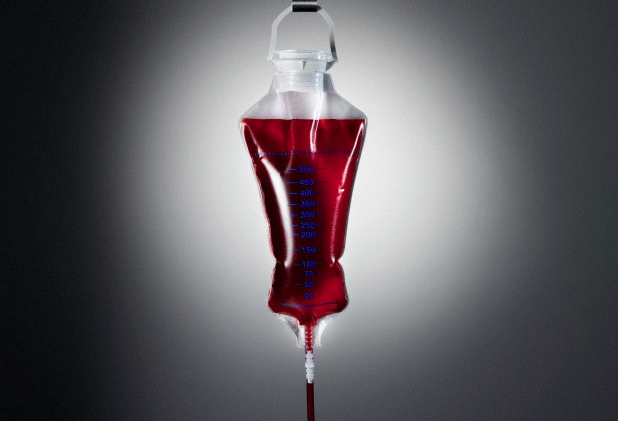 What are blood transfusion risks?
What are blood transfusion risks?
Blood transfusion errors can occur in about 1 out of 14,000 transfusions. Most transfusion reactions occur because of errors made in matching the recipient’s blood to the blood transfused.
Why?
These administrative errors may occur because of mislabeled blood samples or misread labels. Even receiving the correct blood type sometimes results in a mild transfusion reaction.These reactions may be mild or severe.
- Most mild reactions are not life-threatening when treated quickly.
- Severe transfusion reactions can be life-threatening, but this is very rare.
- Mild allergic reactions may involve itching,hives, wheezing, and fever.
- Severe reactions may cause anaphylactic shock.
There are several immune-related transfusion reactions:
- A nonhemolytic fever reaction cause fever and chills without destruction (hemolysis) of the red blood cells. These problems occur because the body mistakes the new blood as harmful and makes specific antibodies to destroy it. This is the most common transfusion reaction. It can occur even when the blood has been correctly matched and administered. The more transfusions you receive, the greater your risk for this type of reaction. Careful screening helps reduce the risk for these problems.
- A hemolytic transfusion reaction can cause the most serious problems, and can be life-threatening. These reactions can occur when your ABO or Rh blood type and that of the transfused blood do not match. If this happens, your immune system attacks the transfused red blood cells.
- A mild hemolytic transfusion reaction can happen when there is a mismatch of one of the more than 100 minor blood types. Most of the time, these reactions to the minor blood types are less serious than a mismatch of the ABO or Rh blood types.
- An immune reaction to platelets in transfused blood results in the destruction of the transfused platelets. People who have this type of reaction may have trouble finding blood that can be transfused without causing a reaction. In rare cases, an immune reaction may take place that attacks the person’s lungs (transfusion-related acute lung injury). This results in trouble breathing and other symptoms.
What is Fluid Overload?
Fluid overload is a common type of nonimmune reaction.
- Fluid overload can occur when you receive too much fluid through transfusions, especially if you have not experienced blood loss before the transfusion.
- Fluid overload may require treatment with medicines to increase urine output (diuretics) to rid your body of the excess fluid.
Very rarely, a person can develop iron overload after having many repeated blood transfusions. This condition is often treated with medicine.
What are the Risks of Infection?
The transmission of viral infections, such as hepatitis B or C or HIV, through blood transfusions has become very rare because of the safeguards enforced by the FDA. The risk of infection from a blood transfusion is higher in less developed countries, where such testing may not happen and paid donors are used.
It is possible for blood to be contaminated with bacteria or parasites. Bacterial contamination can happen during or after donation. Donated blood might have a parasitic infection. Transfusion with blood that has bacteria or parasites can result in a systemic infection. But this risk is small.
The risk of a bacterial infection in donated blood is small because of the precautions taken in drawing and handling blood. There is a greater risk of bacterial infection from transfusions with platelets. Unlike most other blood components, platelets are stored at room temperature. If any bacteria are present, they will grow and cause an infection when the platelets are used for transfusion.








